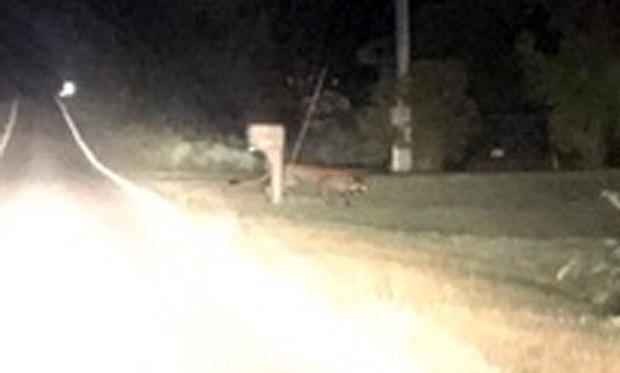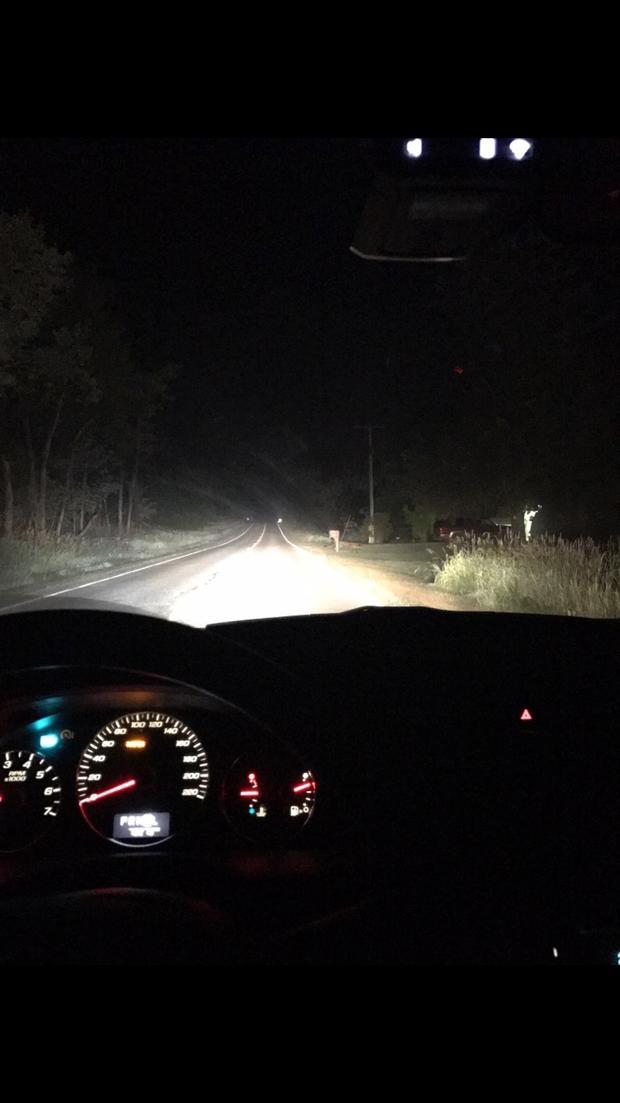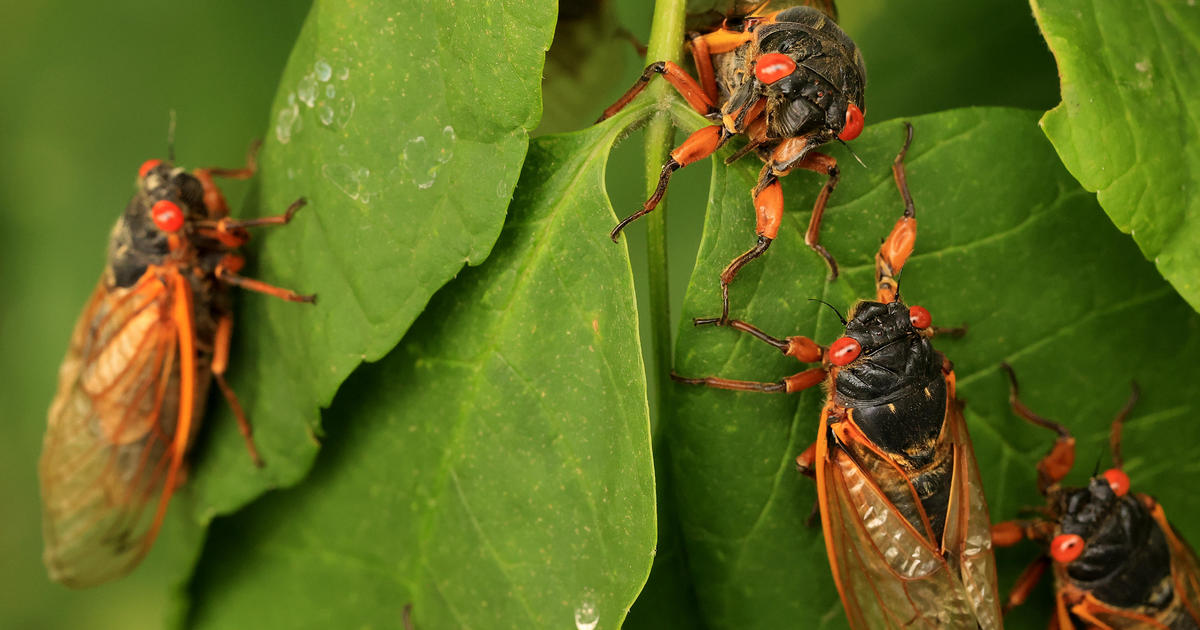Michigan DNR Confirms Presence Of Cougar In Lower Peninsula
BATH TWP. (WWJ) - For the first time, a cougar sighting has been verified by the Department of Natural Resources in Michigan's Lower Peninsula.
The DNR says, on June 21, a Haslett resident was driving in Bath Township, Clinton County, when he spotted a large cat in his headlights as the animal attempted to cross a road. He was able to catch the animal on camera it turned back from the road, passing by a residential mailbox, before disappearing into an area of thick vegetation.
The resident turned the photo over to the DNR and a field investigation ensued. DNR biologist Chad Fedewa and biologists from the DNR's Cougar Team reviewed the photo and visited the site where it was taken — near the Rose Lake State Wildlife Area — concluding that the animal in the photo was indeed a cougar (also known as a mountain lion).
"Even with this verification, questions remain, especially regarding the origins of the animal," said Kevin Swanson, DNR wildlife specialist and member of the agency's Cougar Team. "There is no way for us to know if this animal is a dispersing transient from a western state, like cougars that have been genetically tested from the Upper Peninsula, or if this cat was released locally."
Cougars originally were native to Michigan, the DNR says, but disappeared from the state around the turn of the century. The last time a wild cougar was legally killed by a hunter in Michigan was near Newberry in 1906, according to the DNR.
Over the past few years, numerous cougar reports have been received from various locations throughout Michigan. However, until this time, all confirmed sightings or tracks have been in the Upper Peninsula. Since 2008 a total of 36 cougar sightings have been documented in the UP. To date, the Michigan DNR has not confirmed a breeding population.
Residents should note that cougars are protected under the state Endangered Species Act and cannot be harmed except to protect human life.
The DNR encourage citizens to submit pictures of possible sightings for verification. Observations should be reported at mi.gov/eyesinthefield. If you find physical evidence of a cougar such as scat, tracks or a carcass, take a photo and do not disturb the area.
Although experts say the odds of encountering a cougar in the wild are very small and attacks on humans are extremely rare, the DNR suggests the following tips if you do come across one.
- Face the animal and do not act submissive. Stand tall, wave your arms and talk in a loud voice.
- Never run from a cougar or other large carnivore. If children are present, pick them up.
- Do not crouch and get on all fours.
- If attacked, fight back with whatever is available. DO NOT play dead.
- Report the encounter to local authorities and the DNR as soon as possible.
To learn more about cougars in Michigan, visit this link.





